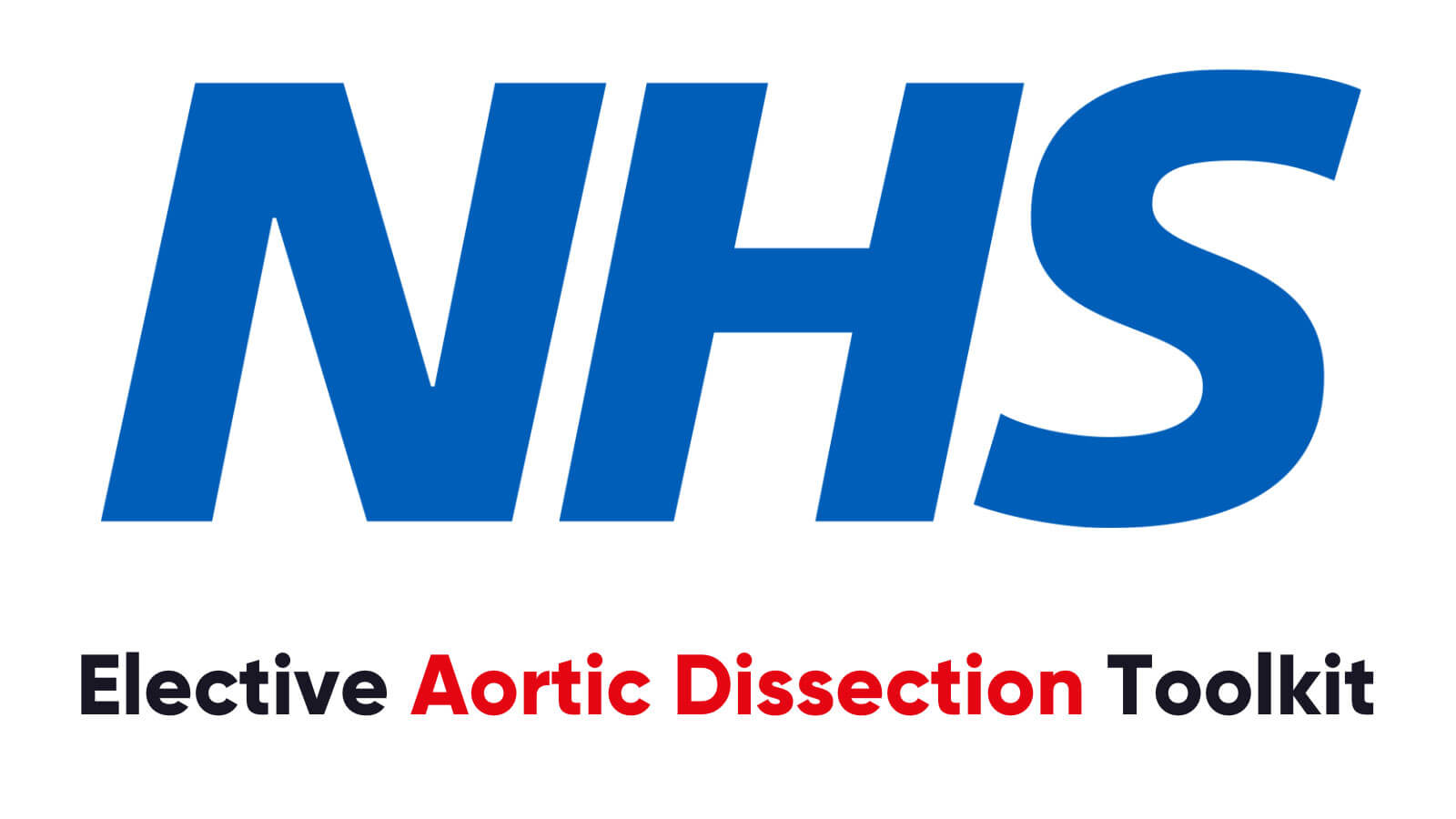The journey at the Aortic Dissection Charitable Trust has been marked by a relentless commitment to improving the quality of life for those affected by aortic dissection. The team’s efforts have finally culminated in a significant stride forward. We’re delighted and proud to announce this milestone.
A comprehensive proposal that we’ve worked diligently on, a collaboration between patients, families and the medical community, designed to improve long term care for those impacted by aortic dissection, has received approval from the Department of Health and Social Care.
With the DHSC’s endorsement, NHS England is moving this forward, assuring us that positive changes in support and services for those affected by dissection will be implemented both now and in the future.
Since 2015, the Trustees of the charity have been continuously engaging with the current and previous Secretary of State for Health & Social Care, highlighting the need for a national agenda for this condition and a way towards patient-centred care that makes a true difference.
Uniting Clinicians, Patients and Families
Throughout this journey, we’ve brought together a diverse group of clinicians, patients, and families; a community with a common objective and unwavering dedication to the cause.
Empowered not to just raise awareness but make tangible changes to enable effective treatment and mitigate the impacts of disability and fatality often associated with this condition.
Our Comprehensive Proposal Makes a Powerful Case for Change
This week, the Department of Health and Social Care, headed by The Rt Hon Steve Barclay MP, has given our proposal the green light! This means we’re set for a paradigm shift in how NHS England will approach AD support and services.
The impact of this approval is substantial. It provides an opportunity to improve thousands of lives, reduce the need for interventions and improve the long-term physical and mental wellbeing of individuals affected by aortic dissection.

The Approved Proposal Covers
Ongoing, Specialist Team Support and Care
The cornerstone of our proposal is that follow-up should always be carried out by specialist aortic dissection teams. While these teams are in place in some specialist hospitals, the sad truth is that not all survivors of aortic dissection receive reliable follow-up.
What’s more, there’s often a gap where a holistic approach to follow-up should be. Imagine a pathway where the consistency of follow-up is aided by specialist nurses, similar to the support structure seen with Macmillan nurses and palliative care. It would represent a seismic shift towards a more comprehensive, patient-centric approach.
And let’s not forget the emotional toll of living with aortic dissection. Patients often face uncertainty about physical activity levels and the anxiety of living with a potentially fatal long-term condition. Here, specialist nurses would play a vital role, offering much-needed support and guidance. Such an approach, as evident in the DHSC’s review, could yield significant short and long-term benefits, including improved patient wellbeing, survival rates, and reduced workload for consultants.
Taking a leaf out of the book of NHSE’s Acute Aortic Dissection Toolkit, an Elective Toolkit developed along the same lines, supplemented with specialist nurses, will be a significant stride towards achieving this objective.
Genetic Screening for Relatives
And last, but certainly not least, we’ve been championing for consistent access to appropriate genetic screening for relatives of those affected by aortic dissection. The present landscape shows a striking variability in both access to these services and the depth of screening offered. This patchwork approach means that not all at-risk relatives — those for whom a dissection could potentially be prevented by prophylactic surgery — are identified.
The next step is for NHS England and the charity to facilitate a series of meetings between relevant professional societies and the NHS Genomic Medicine Service to agree on and implement a set of standardised guidelines for genetic screening of those with aortic dissection and their relatives.
The development of an Elective Aortic Dissection Toolkit will enable agreement on and implementation of a set of standardised guidelines for genetic screening of those with aortic dissection and their relatives would serve as an invaluable resource in rolling out these guidelines. While the network of specialist aortic nurses will play a crucial role to enhance access to screening and ensuring adherence to these new guidelines.
We believe that by securing this consistency in genetic screening, the pathway will support at-risk individuals and provide proactive steps to prevent aortic dissection. In this way, we can move from a reactive to a proactive approach, empowering individuals and families to make informed decisions about their health. This approach has the potential to reduce the number of emergency dissections, placing more patients onto the elective pathway.
A Step Change in Patient Care
We envision a future where follow-up is routinely conducted by dedicated, specialist teams who understand the complex and multifaceted nature of living with aortic dissection. We see a future where the implementation of standardised genetic screening aids in proactive risk assessment, allowing at-risk individuals and families to take control of their health. These are not just fanciful ideas; they are achievable targets that will have life-changing, and indeed lifesaving, effects.
With the Department of Health and Social Care and NHS England on board and fully aligned with TADCT’s proposal and strategy, we are excited to recognise it as a significant milestone in our efforts to improve aortic dissection outcomes. We stand committed to advocating for the best possible care for those affected by AD, striving to save lives, reduce disability, and improve the quality of life for patients and their families.
Proposed Next Steps
Guided by the Cardiac & Vascular Clinical Reference Groups (CRGs) and supported by the Cardiac Transformation Programme, several concrete next steps have been outlined by NHS England:
- Establish a New Aortic Dissection Working Group. This group will comprise members from the Cardiac and Vascular CRGs, representatives from the charity and the relevant clinical societies.
- AAD Toolkit Implementation. The newly established working group will continue to monitor and support the successful roll-out of the Acute Aortic Dissection Toolkit, ensuring that it is effectively implemented nationally.
- Patient Pathway Review. A review of the current elective aortic dissection patient pathway, identifying areas where improvements are required.
- Genetic Screening Exploration. Based on available evidence, the working group will explore the potential cohorts suitable for genetic screening, standardising who should be screened and how.
- Workforce Requirements. The working group will assess the clinical skills and workforce required to support these improvements, potentially paving the way for the introduction of specialised roles like aortic dissection-focused nurses.
We stand on the cusp of a new era for aortic dissection care in the UK. With the DHSC and NHS England fully engaged, and a detailed roadmap laid out, we are more confident than ever that our relentless pursuit for change in aortic dissection care will lead to unprecedented benefits for patients and their families.
Stay tuned for regular updates as we work to turn these ambitious plans into a lifesaving reality.
Your Questions Answered
-
What is the goal of the recently approved proposal by the Department of Health and Social Care?
The goal of the approved proposal is to transform the long term management of aortic dissection. This includes measures for follow-up by specialist aortic dissection teams and consistent access to appropriate genetic screening for relatives.
-
What role do specialist nurses play in the follow-up of aortic dissection patients?
Specialist nurses are crucial for maintaining a consistent and holistic follow-up for aortic dissection patients. They help in managing patient wellbeing, survival rates, and reduce the workload of consultants by conducting their own follow-up clinics.
-
How will consistent follow-up improve the outcomes for aortic dissection patients?
Consistent follow-up ensures that people who need further intervention for their aortic dissection get timely help, preventing emergency situations. It also helps manage the physical and mental health of patients, alleviating the anxiety associated with living with a potentially fatal long-term condition.
-
Why is genetic screening important for relatives of aortic dissection patients?
Genetic screening is crucial as it identifies relatives who may be at risk of aortic dissection. For these individuals, preventive surgery can avert a dissection. It’s a proactive approach that gives at-risk individuals and families control over their health.
-
How will the proposed Elective Aortic Dissection Toolkit help improve care for aortic dissection patients?
The proposed Elective Aortic Dissection Toolkit would provide standardised guidelines for managing aortic dissection, including genetic screening protocols and follow-up care. This would enhance the quality and consistency of care provided to patients.
-
How does the Aortic Dissection Charitable Trust intend to save lives through this initiative?
The Trust aims to save lives by ensuring consistent follow-up care and facilitating appropriate genetic screening. These measures collectively aim to prevent unnecessary deaths, manage the condition more effectively, and improve the quality of life for those living with aortic dissection.





